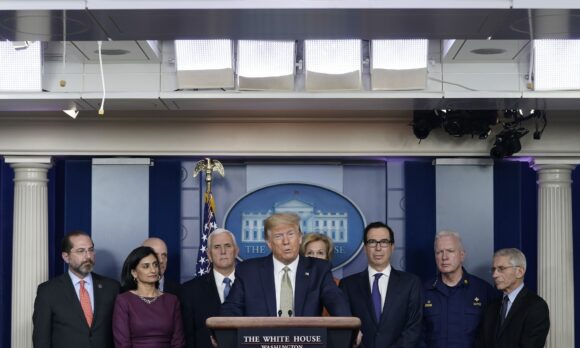
Securing America’s Critical Supply Chains
Supply chain risks are front and center in the global technology competition. How the U.S. government addresses these risks—security, lack of vendor diversity, limited resilience, reliance on foreign raw materials and technology—will have outsized impact on America’s long term economic competitiveness, political power, and military might.
The CNAS project on Securing America’s Critical Supply Chains develops a framework to guide policymakers in determining what supply chains can reasonably be restructured for greater security and resilience and make actionable recommendations for how to do so. The project emphasizes the critical role of the private sector in planning and executing supply chain diversification.
The pandemic crisis exposed the widespread vulnerability and fragility of global supply chains. Quarantines, travel bans, and factory shutdowns showed the risks in achieving economies of scale through geographic concentration. Concerns over supply chains are not new. In Washington, D.C. policy circles, much attention has been paid to areas with a direct impact on defense and national security, such as semiconductors and rare earth elements. What the ongoing crisis lays bare, however, is the extent of the brittleness in areas beyond traditional national security matters and that have a tremendous impact on the ability of the United States to feed and clothe itself, treat its sick, and just plain function. The pandemic is making supply chain diversification more urgent in the eyes of many.
Many policymakers in Washington, D.C. view restructuring of supply chains as essential to protecting and preserving U.S. national and economic security. A growing number of legislators also view reshoring manufacturing as key to introducing needed resilience. Decoupling from China and repatriating manufacturing, however, would present considerable hurdles. While the United States can achieve a lot on its own, its allies and partners have a vested interest in doing the same. Multilateral cooperation on such broad policy issues would lessen the economic impact and help to ease the burden on the inevitable but necessary upheaval these actions will create.
One of the foremost priorities should be to rethink and restructure critical supply chains with the goals of: 1) identifying the supply chains where known vulnerabilities pose excessive risks to a country’s well-being; 2) auditing and mapping these supply chains in cooperation with industry stakeholders; and 3) crafting and executing a sensible strategic plan to disentangle and diversify these supply chains.
This effort is part of the U.S. National Technology Strategy project, which aims to provide concrete, actionable policy recommendations on high-impact areas to further U.S. technological advantage.
Learn more:
Taking the Helm
The United States needs a new approach to regain the initiative. The stakes are high and the window for action is closing....
Defense Technology Strategy
The DoD needs a systematic approach—a technology strategy—for how to prioritize technology investments....
Rising to the China Challenge
The United States and China are locked in strategic competition over the future of the Indo-Pacific—the most populous, dynamic, and consequential region in the world....
Create a bulwark against Chinese economic coercion: Advance open RAN in Europe
It remains critical for the Biden administration and the U.S. Congress to work with transatlantic allies to create a bulwark against Beijing’s economic coercion and advance ne...
Networked: Techno-Democratic Statecraft for Australia and the Quad
Australia is well positioned to lead the Quad to achieve important technology policy objectives....
Digital Entanglement
China’s push to dominate digital infrastructure leaves liberal democratic countries at a critical juncture....
Common Code
The world’s tech-leading democracies should spearhead the creation of a new multilateral architecture for technology policy—a technology alliance....
Uniting the Techno-Democracies
The world’s advanced democracies have something the autocracies don’t: a long history of multilateral cooperation for the benefit of all....
Pandemic Problem: America's Supply Chains are Dangerously Brittle
With all the uncertainty swirling around the Covid-19 outbreak, one thing is crystal clear: the methods needed to prevent or contain an epidemic have exposed the vulnerability...








